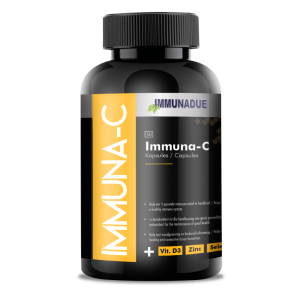- What are intestinal bacteria?
Intestinal bacteria, also known as gut flora or gut microbiota, are a diverse community of microorganisms that reside in the gastrointestinal tract, primarily in the colon. These bacteria play a crucial role in maintaining overall health and well-being, as they help in digestion, immune system function, and the production of essential vitamins and nutrients. The gut microbiota is composed of various types of bacteria, including both beneficial and potentially pathogenic species. The balance between these different species is essential for maintaining a healthy gut environment. Factors such as diet, antibiotic use, stress, and illness can disrupt this balance, leading to gastrointestinal issues and impaired absorption of nutrients. Beneficial intestinal bacteria are involved in several processes, including:
-
- Digestion: They help break down complex carbohydrates, fibres, and proteins that the human body cannot digest on its own.
- Vitamin production: Some bacteria produce vitamins, such as vitamin K and certain B vitamins, which are essential for various bodily functions.
- Immune system support: The gut microbiota helps train and modulate the immune system, promoting a healthy response to pathogens and preventing overreactions that can lead to inflammation.
- Protection against pathogens: Beneficial bacteria compete with potentially harmful microorganisms for space and nutrients, preventing them from colonizing the gut and causing infections.
Maintaining a healthy balance of intestinal bacteria is essential for overall health. Consuming a diverse and fibre-rich diet, limiting the use of antibiotics, and managing stress can help support a healthy gut microbiota.
- What would negatively impact intestinal bacteria?
There are several factors that can negatively impact the balance of intestinal bacteria, potentially leading to gastrointestinal issues and impaired absorption of nutrients. Some of these factors include:
-
- Diet: A diet high in processed foods, sugar, and unhealthy fats can promote the growth of potentially pathogenic bacteria, while reducing the number of beneficial bacteria.
- Antibiotics: Antibiotics are designed to kill or inhibit the growth of bacteria, but they can also affect the beneficial bacteria in the gut, leading to an imbalance in the microbiota.
- Stress: Chronic stress can alter the composition of the gut microbiota, promoting the growth of potentially pathogenic bacteria and reducing the number of beneficial bacteria.
- Infections: Some infections, such as those caused by the bacterium Clostridium difficile, can lead to an overgrowth of pathogenic bacteria and disrupt the balance of the gut microbiota.
- Alcohol consumption: Excessive alcohol intake can negatively impact the gut microbiota by promoting the growth of potentially pathogenic bacteria and reducing the number of beneficial bacteria.
- Aging: The composition of the gut microbiota changes as we age, which can lead to a decline in the number of beneficial bacteria and an increase in potentially pathogenic bacteria.
- Smoking: Smoking can negatively impact the gut microbiota by promoting the growth of potentially pathogenic bacteria and reducing the number of beneficial bacteria.
To maintain a healthy balance of intestinal bacteria, it’s essential to consume a diverse and fibre-rich diet, limit the use of antibiotics, manage stress, and avoid excessive alcohol consumption, smoking, and other factors that can negatively impact the gut microbiota.
- Which vitamins, minerals or other supplements could improve the quantum and diversity on intestinal bacteria?
To improve the quantum and diversity of intestinal bacteria, you could consider taking probiotics, which are live microorganisms that can help promote a healthy gut environment. Additionally, you might want to consider supplementing with prebiotics, which are a type of dietary fiber that can help feed the beneficial bacteria in your gut. Some specific supplements that could be helpful include:
-
- Lactobacillus and Bifidobacterium: These are two common types of probiotics that can help support a healthy balance of gut bacteria.
- Fructooligosaccharides (FOS) and Inulin: These are prebiotic fibers that can help promote the growth of beneficial bacteria in your gut.
- Saccharomyces boulardii: This is a type of yeast that can help support a healthy gut environment and may help reduce symptoms of irritable bowel syndrome (IBS).
- Collagen peptides: These can help support the integrity of the gut lining and may help improve the balance of gut bacteria.
- Digestive enzymes: These can help break down food more efficiently, which may help support a healthy gut environment.
It’s always a good idea to consult with a healthcare professional before starting any new supplement regimen, as they can provide personalized recommendations based on your individual needs and health history.






Reviews
There are no reviews yet.